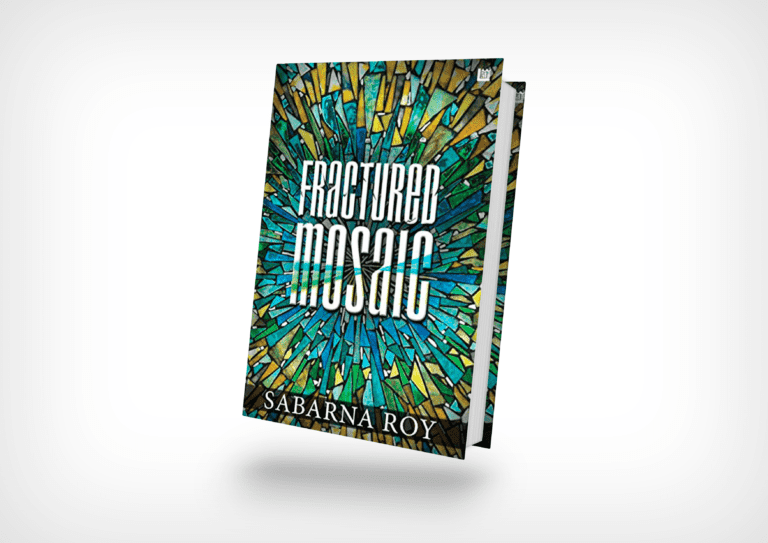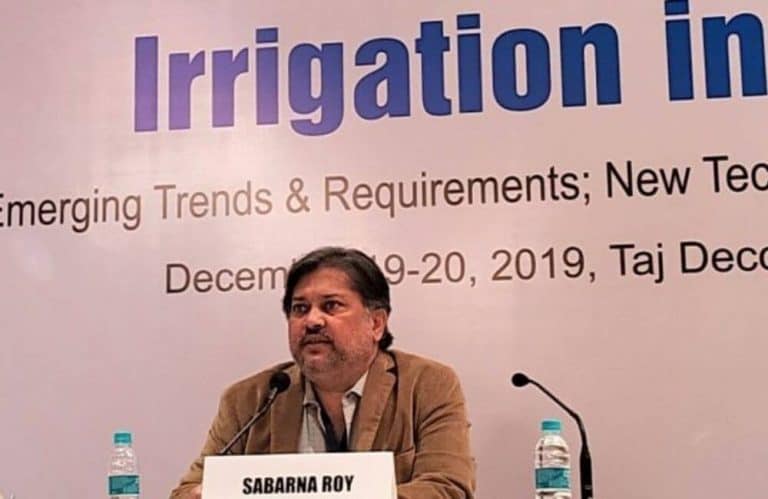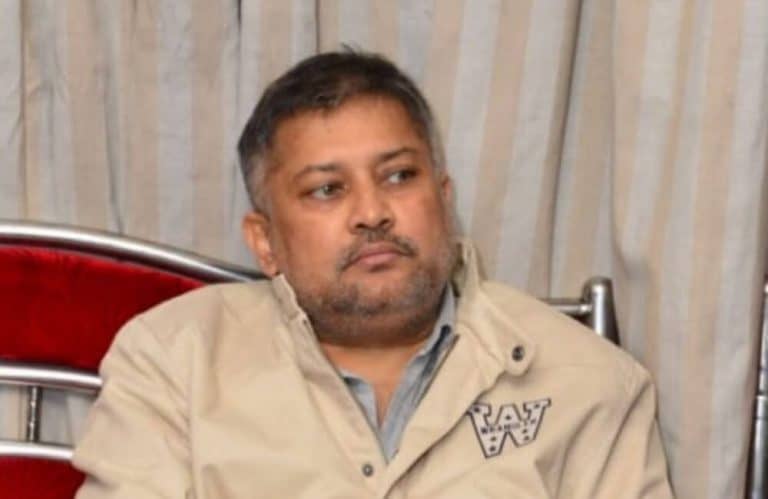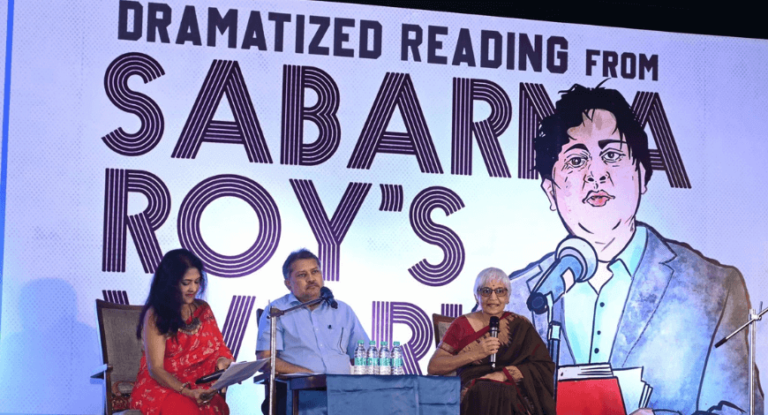Existentialism of mankind forms the core of ‘Sabarna Roy’ works
Sabarna Roy, imaginative and intuitive about the secrets of life, book lover, movie buff, traditional Bengali food enthusiast and an author of five bestselling books, began writing prolifically since 2007. He has carved out a place for himself in the realm of literary writing.He is a prolific writer known for combining his reflections on human life with the surreal world. He writes novels, plays and also composes poems: both trying to penetrate the deepest recesses of the human mind and its fears, uncertainties and vulnerabilities in the modern industrial society.Interviewer: I am aware that you are a senior engineering professional and you have published complex technical articles in peer-reviewed National and International Journals and you are also a published author of 5 literary books since 2010 and your books have been critical and commercial successes. My question is, how do you co-exist?Sabarna: Modern neuroscience has exposed that human brain is multi-disciplinary. Michelangelo and Leonardo Da Vinci are brightest examples to elucidate this point. Without Michelangelo no Structural Engineer could have imagined the inception of membrane technology in the modern sense, which has roots in a fisherman’s net. Da Vinci is credited with the first design of flying air engines intuitively imagined in our epics. With the advent of X-rays, cameras and moving images, art had to find its roots in a new modernity. Quantum physics dealt with indeterminateness and explicitly impacted social theory and literature. The duality of quantum physics in a certain sense took birth 100 years back in the philosophy of Hegel.Likewise, Marxian Thought deeply impacted literature. Freud, whose theory of dreams and psychoanalysis was almost demolished during his lifetime, influenced literature and arts in a unique way and continues to do so even today. I am a trained Civil Engineer – a discipline that deals with the 4 variables of nature: wind, water, soil and heat. The wonders of the world would not be possible without path-breaking Civil Engineering, Material Science and Architectural imagination working hand in hand. The divergence is at the surface. Below the surface lies convergence and connectivity. To me the abyss between liberal arts and technological sciences is a poor social construct. As our society is becoming more and more technological it is approximating the ambiguity and amorphousness of liberal arts.Interviewer: Your first book was Pentacles, which contain a novella and four long narrative poems. It was followed by Frosted Glass that contains a story cycle of 14 long-short stories and a poem cycle of 21 narrative poems. Thereafter, you wrote Abyss, a play in two acts, which at its core is a situational thriller followed by Winter Poems and in the end, Random Subterranean Mosaic, which is a diary or a kaleidoscope of random, yet mysteriously structured to a pattern, fiction, semi-autobiographical and biographical pieces, covering poems, short-shorts, opinions, observations, and conversations. How do you flip between such varied genres so easily?Sabarna: I am essentially a storyteller. So, I write in the form in which stories reveal themselves to me. I do not tinker with forms. For example, Clouds of Life in Frosted Glass came to me as a poem. For some other writer, it could be a story, novel or, even, a novella. It is not, as if, that I sit down to write a poem or a story or a conversation. Whatever would reveal to my mind naturally, I would write that.The Prank, which is a black comedy, occurred as a long-short story. It involved such meticulous detailing of circumstances whereas Instantaneous Death is an outrageous piece of writing, which I believe can only be accomplished in prose. In New Life, the story and the author’s views are interspersed and intertwined. I do not think, it could have been written in any other form. It is in the novellic form.Interviewer: You write a lot about betrayal, loss, love, defeat and wasting in relationships between human beings and that brings us almost to the brink of post-modern crisis. Does this affect you so deeply? Moreover, at times your writings are sexually explicit and could put off purists.Sabarna: I am essentially a chronicler of the times in which I live, the places I have visited, the people I see and interact with. I belong to the post-modern urban India, which in some sense is quite a mess. This does affect me the most. My father keeps on reminding me that India is a country of poor illiterate people. So, if a man does not write about the maximum number of his nation’s people, he should ponder about his role as a writer. I answer him by saying, I do not want to write about people, whose lives I do not know first-hand. But, then, he is an obstinate man. He suggests that I should take a sabbatical for two years and roam around the country knowing the people. I know it is a brilliant idea. At the same time, I have to cut-down on my hedonism to be able to achieve this.Interviewer: Your writing style is consistently lucid and fairly devoid of adverbs and adjectives and you have also written open-ended pieces. What do you have to say to that?Sabarna: I think for an author his writing style is a part of his persona, which he does not understand consciously. There is another thing, I feel completely defeated, if somebody comes up to me and tells me, I do not understand, what you have written about. So, I make a very conscious effort to be lucid when I am writing about complex issues.Interviewer: You are a self-proclaimed atheist. Yet, one gets a deep spiritual sense reading your books; what would you ascribe that too?Sabarna: It could be because I am alternately suffering from bouts of melancholy that brings me closer to the spirits. I am absolutely a rational man and in my present state of mind, I would be subservient to nobody.Interviewer: I would also like to comment that you have been very equitable with your male, female characters and characters with complex sexual choices, like, Rahul, Kingshuk, Nina, Nandana, Bimala, Rohini and Gabbar, and all of them are deeply etched and richly woven in the texture of your narrative fabric. It is explicit that you maintain a distance from what you are writing; how do you do that?Sabarna: I am neither a sentimental nor a romantic person. The story is happening on the movie screen of my mind and I copy it from this screen. So, in the process as a habit I do not look at any phenomenon in terms of a conflict between a perpetuator and a victim. The conflict that takes place within is played out between characters. An author must be empathetic to all its characters. Otherwise, we would not require art and literature to understand our lives.Interviewer: What should we expect out of your future writings?Sabarna: The horror of partition gave us sparkling literature and arts. Similarly, CAA and NRC in the next 10 years will give us equally sparkling subjects of rootlessness to explore in a new dimension. Interestingly and ironically, the powerful always give us subjects to write on when we are on the brink of thinking that we are going to end up with subjects. Presently, I am working on a narrative of ideas that through literary and scientific evidence establish the certainty of uncertainty underlying human characters and individuals. The book is likely to come out in the winter of 2021.
Source: www.forbesindia.com







